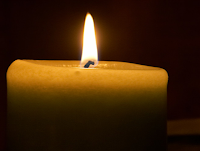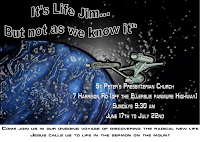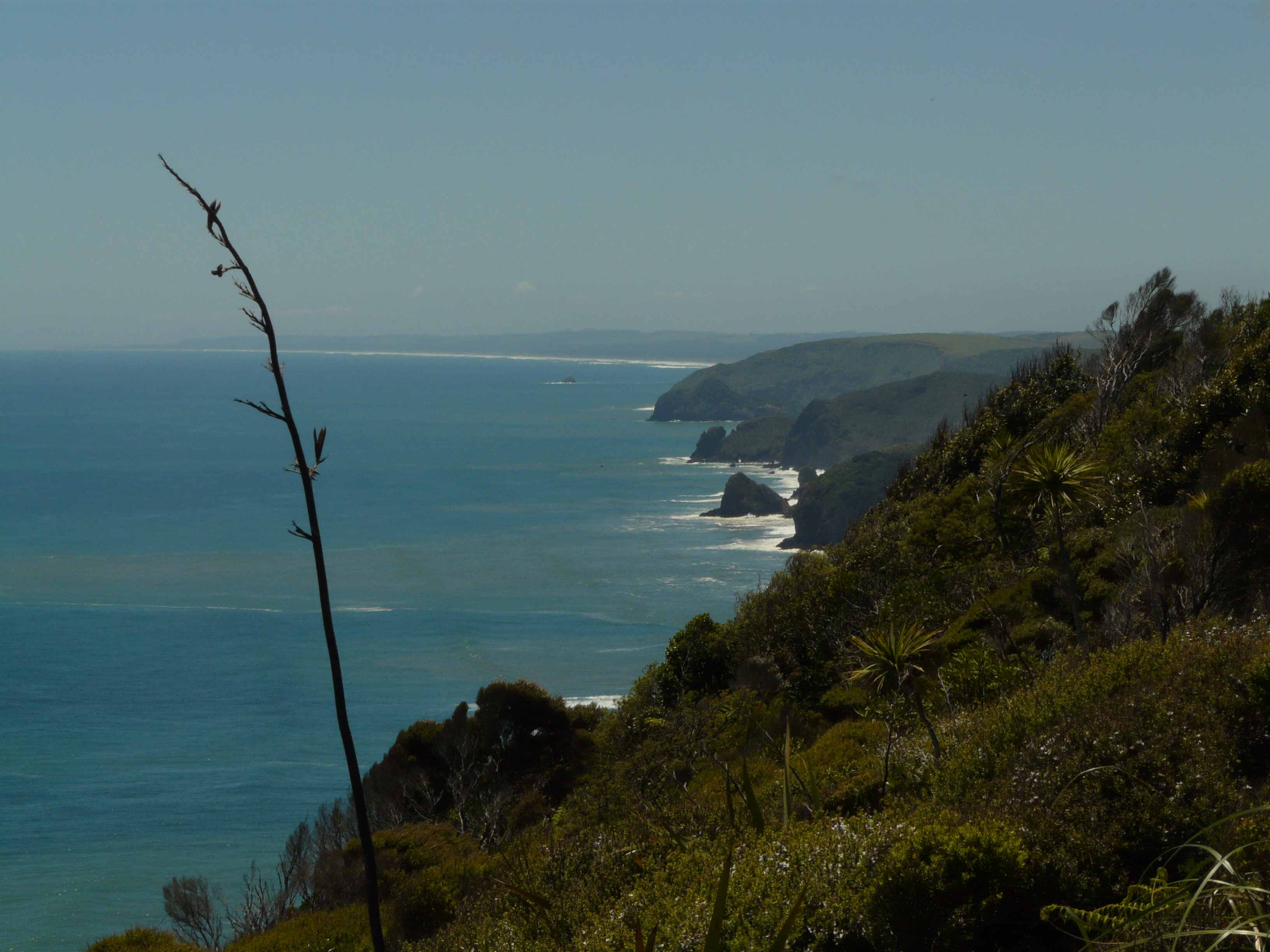

It’s not the most encouraging
thing when you are preaching on a passage in scripture to have the first
commentator you read start by saying “these are some of the hardest verses in
scripture to understand”. So I was pleased the next person I read started with
a story, a sports story at that. He told the story of his baseball coach
arguing with an umpire over the interpretation of one of the rules of the game.
It got rather heated and finally the umpire reached into his back pocket, never
a good sign in this country if you’re on a sports field right, and pulled out
the rule book and turned to the appropriate rule. He read it out. The coach still wanted to
argue and suggested that the umpire’s interpretation of the rule was wrong in
this case. However what the umpire said next changed everything. “No my interpretation
is correct… I’m the guy who wrote the rule book”. The coach shut up walked back to the
dugout saying “ Get a hold of that Guy, he wrote the rules.” That’s the sort of
situation we have in the passage we had read today from Jesus Sermon on the
Mount. We find Jesus stating his relationship with the law and the prophets and
starting to deal with and how they apply to his disciples.

That might seem a trivial way
of staring to talk about a passage that deals with such big questions as how
Christianity connects with its Jewish roots? How are we as followers of Jesus
to understand the scriptures of the Old Testament? How do the mosaic laws apply
to us? Is it salvation by grace or by obeying the law? Does being a follower of
Jesus imply some sort of legalism? These are questions that have been part of
the Christian faith right from its start. If you read through Acts and some of
Paul’s letters you see a group called the Judizers who wanting gentile
followers of Jesus to live by a strict interpretation of the Mosaic Law. The
first ever general assembly of the Church, in Acts 15, dealt with that very
issue. What eventually caused the church to get together and decide what they
would consider as their sacred writings was in response to a man called
Marcian, who saw Christianity as a total break from its Jewish past, so he
ended up with only small parts of the gospels mainly Luke as the scripture he
saw as God inspired. Even today, as we wrestle with some of our most pressing
moral and ethical issues how we apply scripture from the Old and New Testament
is often at the centre. Some people want us to be biblical literalists, they
are modern day legalists, others simply say Jesus replaced the law with an
ethic of love, they ignore Jesus own Jewish heritage.

Let’s look at Jesus and the
Law. Jesus had started his sermon on the mount by using the third person,
blessed are the, a great invitation to come into the Kingdom in the beatitudes,
then he moved to address his disciples
in the second person, you are salt and light, now he moves to the first person
and talks of who he is and his mission.
“Do not think that I have come
to abolish the Law or the Prophets; I have not come to abolish them but to
fulfill them. For truly I tell you, until heaven and earth disappear, not the
smallest letter, not the least stroke of a pen, will by any means disappear
from the Law until everything is accomplished.”

If we were to put
Jesus first phrase into a modern vernacular we might say ‘Don’t think for one
minute” there is a real sense that Jesus is aware of the impact his revolution
of grace it had caused his listeners to wonder if this meant that all that had
gone before no longer applied. The prevailing religious understanding of the
day was that you needed to keep all the laws to please God. Jesus puts that understanding
on its head. But Jesus is quick to point out that he hadn’t come to do away
with the law and the prophets rather he had come to fulfil them. When we think of the law and the prophets we
often simply think of the law of Moses of the rules and regulations, we forget
that this was a short hand way of referring to all the books of the Old
Testament. The Torah or the law is the first five books, that tells of God’s
calling Israel to be his people, the prophets refers to the written prophets
and history books of the Old Testament, interpreting their history in the light
of that covenant and applying into the various contexts they found themselves
in. It was also used to cover the wisdom books and poetry as well.
How did Jesus
fulfil This?
Firstly, as we saw in
the video called the thread there is a story running through the whole of
scripture, about God’s relationship with God’s creation. A relationship that
was broken by sin and that God has been at work to repair. Through Abraham God
calls a people to be his own, he saves them from slavery in Egypt. He gives
them his law, so they will live in a way that reflects the just nature of God
who has saved them. In this they were to be a light to the nations, calling
them to come and know and worship God. Jesus is the fulfilment of this. This
revelation of God’s nature and purpose is fulfilled in Christ. God’s new
creation is made possible in Christ.

Secondly, his
sacrifice on the cross can only be understood in the context of the Old
Testament sacrificial laws, Jesus fulfilled their purpose of providing a
sacrifice, once and for all, for the forgiveness of sin. Right from the start
the Church did not carry on the practise of animal sacrifice, they knew that
its purpose and reason had been fulfilled in Christ.
Thirdly, as Martin
Luther says ‘the only thing Jesus added to the Mosaic Laws was that he kept
them”. We see that Jesus showed us what
a human being who kept the law was like. To be a disciple, to be salt and light
in the world is to be Christ like, which is what the word Christian means. If
you want to know what it means to live a God centred life … “get a hold of this guy… he wrote the rule
book’…
The law will
not pass away because its purpose is still being worked out in the world. We’ve
been bought into a relationship with God, in Christ and we need to know how to
live that out in our lives and to teach others to do the same. But as we go
through the rest of the Sermon on the Mount we see Jesus as the one who wrote
the book, exercise the authority to interpret it correctly. In a series of case
studies Jesus corrects misunderstanding of various laws of the Old Testament
and in doing so helps us to grasp their true meaning.
Now Jesus turns to
look at our relationship with the Law and prophets.
19 So if you ignore
the least commandment and teach others to do the same, you will be called the
least in the Kingdom of Heaven. But anyone who obeys God’s laws and teaches
them will be called great in the Kingdom of Heaven. 20 “But I warn you—unless
your righteousness is better than the righteousness of the teachers of
religious law and the Pharisees, you will never enter the Kingdom of Heaven!”
Firstly, greatness
in the kingdom of heaven say John Stott comes through living it out. There is
an ethical element to our faith. Keeping Christ’s commandments however is not
how we get in the kingdom that is by God’s grace it’s how we are to live out
the kingdom.

Secondly, Jesus call
to us is to live that out in a different way than the teachers of religious law
and the Pharisees. To have a better righteousness, let’s face it in Jesus day the Pharisees were
the spiritual superstars they were about keeping the law, they were good, but
Jesus says they were not good enough. Perhaps to best understand this we should look
at Jesus summery of the Pharisees in Matthew 23:23. Jesus says the Pharisees
had got so caught up in the observing the law, in the most minuscule of ways,
in trivial matters, like arguing over tithing herbs, that they had forgotten
the weightier matters of the law, what was at its heart, Justice Mercy and
Faithfulness. It was an external, legalistic keeping of the law and Jesus here
is calling his disciples to have a deeper righteousness, that not only our
actions but our attitudes would be changed.
It is a right way of
living that comes from a changed heart. In Jeremiah 31:33 we see a looking
forward to the coming of the messiah, that God would write his laws on our
hearts, In Ezekiel 36:21 we see a looking forward to a time when God would place
his spirit in people and cause them to walk in God’s ways. It’s a better
righteousness because it comes from God’s changing our hearts, it’s about
relationship not regulations.

In the rest of
Matthew Chapter 5, in a teaching technique that has become very popular again,
Jesus gives case studies to help us see what this different righteousness means.
In a series of ‘You’ve heard it said” but I say sayings Jesus takes the way the
law had been misunderstood and provides his right interpretation, a deeper and more transformed way of living
it out. It’s not simply thou shall not kill, says Jesus, but not harbouring
anger towards others , not denigrating them not even, and boy is this
challenging putting them down. Thou shall not kill is a law designed to limit
evil, but Jesus says God’s way demands that we treat others with love and
respect, we value life. He will do the same thing with thou shall not commit
adultery, by challenging his disciples to see it’s not only the act of adultery
as wrong but how we view other human beings, to use a
modern phrase that we don’t objectify them. The Pharisees and teachers of the
law were arguing about what constituted grounds for divorce, and Jesus puts the
focus back on not looking for offence but on working on those
relationships. The Pharisees had
wrestled over what is a binding oath, if you swear one by this its binding, if you swear it by that
we’ll it dosen’t count. Sort of Like “
aha it doesn’t count I had my fingers crossed” or Pinky swear to make it
binding, Jesus says hey guys its rather that we should be people whose word can
be trusted. A simple yes or no is sufficient, just be straight and people of
integrity. The most famous of these case studies is Jesus call not just to love
your neighbours and friends, but people who do you wrong , and whom you find
impossible to love, to love your enemies. Later in chapter six Jesus will look
at more religious laws, giving prayer and fasting and again look towards
actions reflecting a kingdom attitude. Alms
giving is not about giving the right amount , the tithing law was so in the ace
of our greed and selfishness the poor
would be cared for, but kingdom of heaven righteousness is a call to
generosity, of sharing what we have so that there will be no needs, trusting in
God to take care of us. Over the next few weeks we are going to look at these
case studies. Today has been rather theoretical but just as Jesus does it’s
going to get real practical.
In saying our
righteousness should be better than the Pharisees and teachers of the law Jesus is calling his disciples to not just to
adhere to a set of rules, but rather that our lives should reflect a changed
heart.
I want to finish off
today by making some what I hope are practical applications.
Firstly, It shows us
that the Old Testament is important and worthy of our study. I read a portion
of the Old Testament each day as well as the new and a psalm and proverbs. It’s
useful both for its positive examples but also its negatives. The prophets help
us understand how the word of God is applied to different contexts. It also
important not to simply project it forward but to view it through the lens of
Christ, we are not people of the you’ve heard it said… we are the people of but
I say.
 Secondly, following
Jesus is not just following a set of regulations; it’s about working out this
relationship with others and the world at large in the light of that central relationship with
God. By using case studies and not
simply giving a list of do’s and don’t Jesus is helping train us in working out
how to be light and salt in all of the situations we find ourselves in, by
living and acting from a changed heart. Can I say that that means down through
the ages Christians have found themselves on different sides of the ethical
debates of their age. Slavery is a great example of that. I guess it’s the same
today with the debates over some of our ethical questions , homosexuality is one of the most prominent. We don’t always get it right, we are going to
find ourselves wrestling between legalism and grace. The hope is that God has placed his spirit
within us, to bring to mind what Jesus has said, to lead us into all
truth. To enable us in how we live and
what we say to witness to Jesus Christ and to produce Christ like fruit in our
lives.
Secondly, following
Jesus is not just following a set of regulations; it’s about working out this
relationship with others and the world at large in the light of that central relationship with
God. By using case studies and not
simply giving a list of do’s and don’t Jesus is helping train us in working out
how to be light and salt in all of the situations we find ourselves in, by
living and acting from a changed heart. Can I say that that means down through
the ages Christians have found themselves on different sides of the ethical
debates of their age. Slavery is a great example of that. I guess it’s the same
today with the debates over some of our ethical questions , homosexuality is one of the most prominent. We don’t always get it right, we are going to
find ourselves wrestling between legalism and grace. The hope is that God has placed his spirit
within us, to bring to mind what Jesus has said, to lead us into all
truth. To enable us in how we live and
what we say to witness to Jesus Christ and to produce Christ like fruit in our
lives.














































